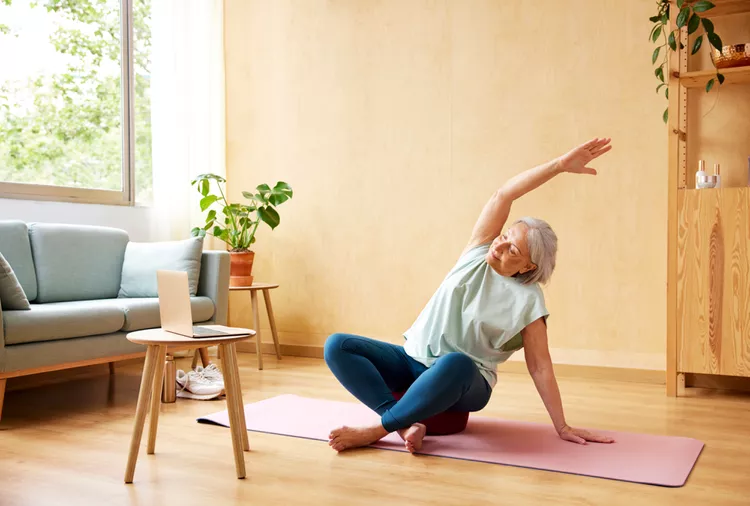In today’s fast-paced world, many people are turning to mindfulness and stress management techniques to stay calm and balanced. Whether you face work pressure, studies, or personal struggles, mindfulness helps you manage stress by keeping your mind focused on the present moment.. Whether it’s school deadlines, work pressure, or personal challenges, we all feel mentally drained sometimes. That’s where mindfulness steps in — a simple yet powerful practice that helps you manage stress, stay focused, and live peacefully in the present moment.
What Is Mindfulness?
Mindfulness means paying full attention to the present — without judgment. It’s about being aware of your thoughts, emotions, and surroundings rather than letting your mind wander to the past or worry about the future.
“Mindfulness is the art of being present in your own life.” — Anonymous
When you’re mindful, you notice your breath, your thoughts, and even the smallest sensations — like the feeling of air touching your skin or the sound of birds outside. This simple awareness helps your mind slow down and reduces stress naturally.
The Link Between Mindfulness and Stress
Stress often comes from thinking too much about what has happened or what might happen next. Mindfulness breaks this loop.
It trains your brain to stay in the “now.” When you’re fully present, your body and mind relax because you’re not fighting imaginary battles in your head.
“You can’t stop the waves, but you can learn to surf.” — Jon Kabat-Zinn
Dr. Jon Kabat-Zinn, the founder of Mindfulness-Based Stress Reduction (MBSR), explains that mindfulness doesn’t remove problems — it changes how we respond to them. Instead of reacting with anger or anxiety, mindfulness teaches calm acceptance.
How Mindfulness Helps Reduce Stress
Here’s how mindfulness works on a deeper level:
- Reduces overthinking – When you focus on your breath or your surroundings, your brain stops replaying stressful thoughts.
- Balances emotions – It helps you observe your feelings without letting them control you.
- Improves focus – Mindfulness increases your ability to concentrate on one task, reducing the chaos in your mind.
- Relaxes the body – Deep breathing and awareness lower blood pressure and relax your muscles.
- Promotes positivity – You start feeling more grateful and calm, even in tough situations.
“Almost everything will work again if you unplug it for a few minutes… including you.” — Anne Lamott
Simple Mindfulness Practices You Can Try
You don’t need a fancy setup or a quiet mountain retreat to practice mindfulness — you can do it anywhere, anytime.
1. Mindful Breathing
Sit comfortably, close your eyes, and take a deep breath in… then slowly let it out. Focus on your breathing rhythm.
Do this for 5 minutes daily. Whenever your mind wanders, gently bring it back to your breath.
2. Mindful Walking
While walking, notice the ground under your feet, the sound of each step, and how your body moves. Feel the breeze, hear the sounds, and just be there.
3. Gratitude Practice
Each night, write down three things you’re thankful for. This simple habit shifts your focus from stress to appreciation.
4. Mindful Eating
Instead of rushing your meals, eat slowly. Notice the texture, taste, and smell of your food. It not only improves digestion but also makes you feel calmer.
5. Body Scan Meditation
Lie down, close your eyes, and slowly focus on each part of your body from head to toe. Notice any tension and allow it to relax.
Mindfulness in Daily Life
You can bring mindfulness into your normal routine in small ways:
- When drinking tea, feel its warmth and aroma.
- When listening to someone, give them your full attention.
- When feeling anxious, take three deep breaths before reacting.
- When working, focus on one task at a time instead of multitasking.
These small acts train your mind to stay calm, focused, and balanced — even during chaos.
“The present moment is the only time over which we have dominion.” — Thích Nhất Hạnh
The Long-Term Benefits
With regular mindfulness practice, you’ll notice:
- Better emotional control
- Improved sleep quality
- Less anxiety and irritation
- Sharper memory and concentration
- A deeper sense of peace and happiness
Mindfulness is not about changing who you are — it’s about becoming more aware of who you already are and learning to handle life’s ups and downs with grace.
Final Thoughts
Mindfulness isn’t a quick fix; it’s a lifelong habit that helps you live with clarity and calm. Every time you pause and take a mindful breath, you are choosing peace over pressure, awareness over anxiety, and calm over chaos.
“Peace comes from within. Do not seek it without.” — Buddha
Start today — take one deep breath, let go of your stress, and simply be in the moment.




